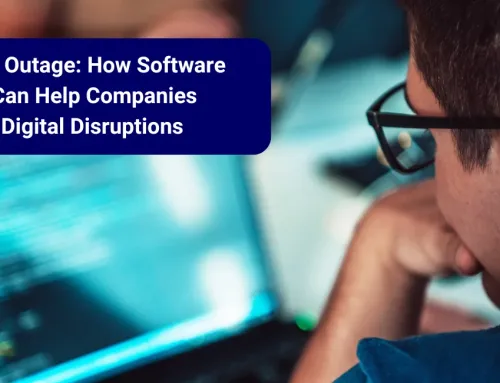During challenging market conditions, almost every company seeks to attract more and happier customers. Particularly in the early days of a scaling technology business, growth is almost always the main priority. In the dynamic landscape of software development and distribution, software escrow has emerged as a valuable tool that fosters trust, mitigates risks and enhances customer sales and processes. Technology companies can leverage software escrow services to provide their customers with an added layer of assurance and support during the sales process and throughout the lifecycle of their license agreement and often help to land that next enterprise customer.
What is Software Escrow?
Software escrow is a contractual arrangement between a software company, a customer, and a trusted third-party escrow agent. The purpose of software escrow is to minimize risks between a supplier and a customer. Ensuring that the customer can access source code, related intellectual property, data or access to a hosting environment in the event of unforeseen circumstances such as software vendor bankruptcy or their inability to uphold their support obligations.
Strengthening Customer Trust
When working with a new software vendor, companies perform extensive due diligence to minimize their risk and increase the likelihood of a successful project and supplier engagement. You know, those endless questionnaires around financials, trading history, security and business continuity. Well software escrow plays a vital role in building trust between software companies and their customers by having a formal often tested contingency plan with a mutual and trusted intermediary third-party. By offering software escrow as part of their sales process, software companies demonstrate their commitment to meeting their customer’s demands and provide a safety net that mitigates concerns related to potential supplier failure. Software escrow is used in addition to any existing security or disaster recovery plans that help from a technical risk perspective.
Assuring Business Continuity
When onboarding a new solution to perform a critical business process, companies want to ensure the product will be available regardless of what happens outside of their control to their supply chain. Software escrow acts as a safeguard, ensuring the continuity of business operations for customers. In the event of a vendor bankruptcy, acquisition, or other scenarios that could impact the availability of the software, the customer can access the escrowed materials, including the source code, cloud environment, data and relevant assets allowing them to continue to use and maintain the software. .
Mitigating Risks and Addressing Compliance Requirements
Software escrow also helps mitigate risks associated with supplier failure, stressed exits and third-party vendor dependency. Ensuring that customers have access to critical software components in the event that the vendor faces unexpected challenges. This can be particularly important for industries with stringent compliance requirements such as financial services, where continuity of software functionality is crucial for business operations and companies must have a validated stressed exit or recovery plan in place.
Supporting Customer Engagement and Collaboration
Beyond the sales process, software escrow can enhance customer engagement and collaboration especially where there is custom development work being performed. By providing customers, via software escrow, with access to the source code and related assets, software companies demonstrate alignment with their customer’s goals and ambitions often resulting in a more successful project.
Strengthening Competitive Advantage
Implementing software escrow can provide software companies with a strong competitive advantage over and above other vendors as part of their bid responses or sales processes. By offering this additional layer of protection and assurance, software companies can differentiate themselves from competitors and position their solutions as more reliable and trustworthy in the eyes of potential customers. This can be a decisive factor in competitive sales situations. Particularly useful when building or scaling a software company and selling to larger or enterprise companies, being able to alleviate customer concerns is vital.
Conclusion
In the world of software development and distribution, software escrow has emerged as a vital tool for software companies to support their sales efforts and enhance customer engagement. By providing customers with peace of mind, mitigating risks, and fostering collaboration, software escrow strengthens relationships, builds trust, and ultimately contributes to the success of both software companies and their customers. As the software industry continues to evolve, embracing software escrow can be a proactive strategy that ensures business continuity, strengthens customer relationships, and positions software companies for long-term growth and success.








